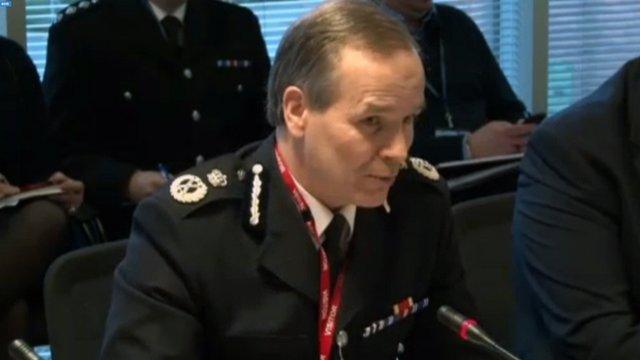Stop-and-search: HM Inspectorate of Constabulary calls for stricter guidance
- Published
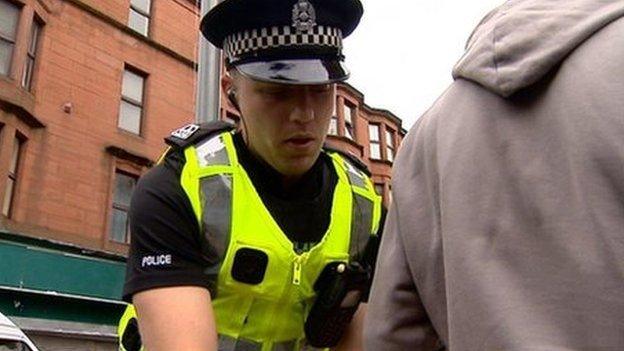
The stop-and-search policy has proved controversial
A police watchdog has called for a code of practice, backed by law, on the use of stop-and-search.
The inspector of constabulary, Derek Penman said officers did not have definitive guidance of what should be recorded as a stop-and-search.
And he said he did not have confidence in the stop-search data held by police.
The Scottish government responded by setting up a new advisory group to examine the use of stop-and-search powers in Scotland.
In the HM Inspectorate of Constabulary Scotland (HMICS) report the inspector said there was no guidance on how searches should be counted and he criticised a lack of data validation and quality control processes by Police Scotland.
The report recommended a move from "consensual" searches to "statutory" searches, where a person is stopped under legislative powers.
Responding to the report, Justice Secretary Michael Matheson said the police had confirmed there would now be a presumption against consensual stop-and-search for all age groups.
The new independent advisory group, which will be chaired by prominent solicitor advocate John Scott QC, will be asked to make recommendations on whether that goes far enough or if the practice should stop altogether.
It will also help to develop a draft code of practice for the use of stop-and-search in Scotland.
It will present recommendations by August so that any legislation needed can be included in the Criminal Justice (Scotland) Bill.
Police Scotland, which also published its own review of the practice, said it accepted the HMICS recommendations.

Stop-and-search - latest data
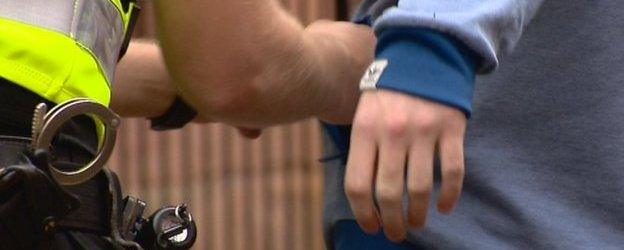
By Marc Ellison, BBC Scotland data journalist
On the eve of Police Scotland's second birthday, a damning report has been released regarding the quality of its stop-search data.
At the same time, new data has emerged showing that dozens more children were frisked on Scotland's streets in December.
These figures - which took several months to obtain through a freedom of information request - reveal 36 minors were searched that month.
Of those, 16 were consensual - 81% of which resulted in the discovery of no contraband items.
The majority of these were related to alcohol and weapons - but they were largely unsuccessful searches (with 15% and 0% success rates respectively).

Police Scotland has been under considerable pressure to reduce the number of consensual searches after incidents where children under the age of 12 were said to have agreed to be searched by officers.
The inspector's report said Police Scotland conducted 83 consensual searches of children aged 11 or under between June 23 and December 31 last year, after the policy was scrapped.
It said communication of the change in policy could have been more effective.
The inspector also called for stop-and-search to be removed as a key performance indicator for Police Scotland, noting that officers still thought volume targets exist.
HMICS concluded that there was currently no clear link between the use of stop-and-search and reductions in crime.
Mr Penman said: "We have suggested a way forward that should result in significant reductions in consensual stop-and-search across Scotland, whilst at the same time building a reliable evidence base to allow a more informed view on the future need for consensual stop-and-search.
"We have recommended a move towards legislative stop-and-search which, combined with improvements in recording practices, training, supervision and audit, should give communities across Scotland more confidence in the use of stop-and-search.
"We believe the development of a statutory code of practice would establish clearly-understood principles and safeguards for the public and would be particularly beneficial in providing clear and transparent guidance on the conduct of searches."
Public consensus
Police Scotland also handed a report on a review of stop-and-search practices to the Scottish government.
Deputy chief constable Rose Fitzpatrick said stop-and-search would remain an important tool for the police but the force was committed to ensuring it was undertaken "within a public consensus".
Justice Secretary Michael Matheson said: "Stop-and-search can be a valuable tool in combating crime - but we must get the balance right between protecting the public and the rights of the individual.
"As such, it is vital that stop-and-search powers are used appropriately, and we need to make some key decisions on how such powers should be used going forward. We need a clear, consistent approach which, as a society, we can all be agreed upon."
John Scott, who will lead the advisory group, said there was considerable uncertainty and confusion among the public and police about when stop-search was justified.
The prominent human rights lawyer and chairman of Howard League Scotland said: "This is an area in which it is important to strike a balance between, on the one hand, allowing the police to continue to address crime in all its aspects, including prevention and deterrence, and, on the other, the right of the public, including our young people, to go about their daily lives untroubled by unjustified police activity.
"Striking a proper balance is not possible while confusion continues."
- Published31 March 2015
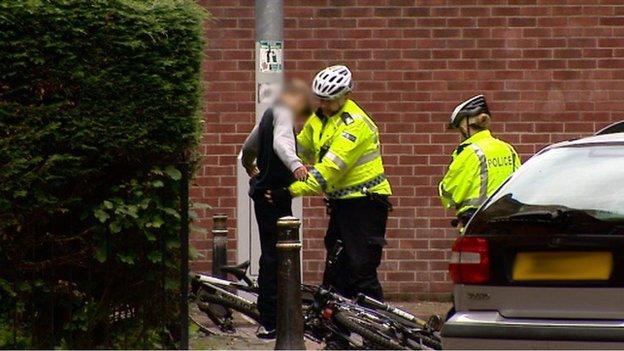
- Published19 February 2015
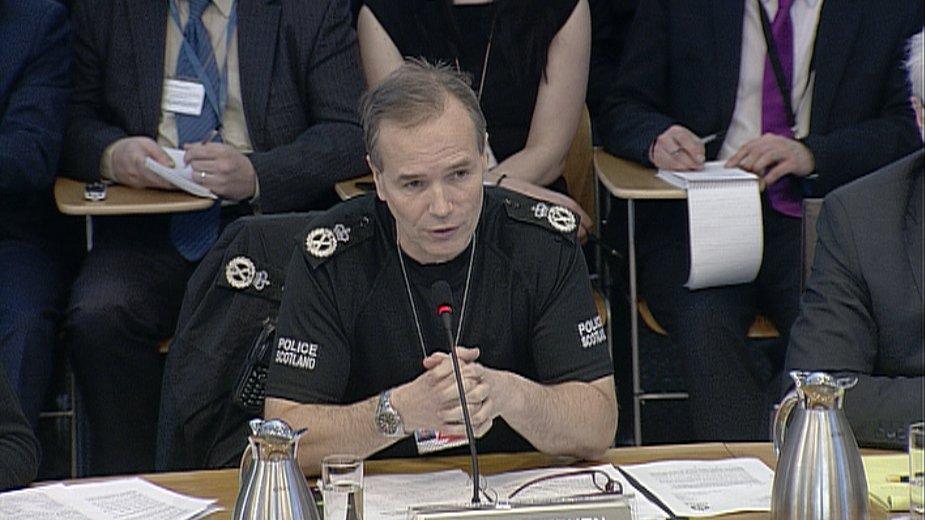
- Published13 February 2015
